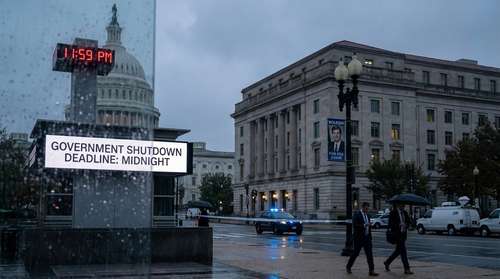BRICS Nations Unite Against Tariff Threats: A Bold Economic Response
The global economic landscape is constantly evolving, and when new challenges arise, it’s always interesting to see how nations band together. Recently, BRICS nations have taken a clear stand against tariff threats that could reshape international relations. This isn’t just about numbers and percentages—it’s about sovereignty, economic cooperation, and a shared vision for a more just global trade system.
People often wonder how emerging economies can effectively counter protectionism, especially when a superpower is involved. In this case, countries like Brazil, Russia, India, China, and South Africa have decided that it’s time to stand up and say enough is enough. They believe that tariff threats are not only a challenge to their economic strategy but also signal an alarming shift in trade policy that might undermine multilateral trade and economic diplomacy.
Responding to Tariff Threats
The group’s recent summit was nothing short of a pivotal moment in international relations. Here, the BRICS nations united to voice their opposition against tariff threats, highlighting how such measures could impede global trade and economic impact worldwide.
This gathering was about more than a simple rebuttal to a single trade policy; it was a demonstration of power and unity. One can compare this coalition to a well-coordinated sports team, where every player knows their role and understands that only through collective effort can they win against a formidable opponent. The discussions were robust, and a clear message was sent: protectionist measures, especially when imposed unilaterally, will not dictate the future of global trade. The leaders emphasized that tariff threats could be as dangerous as stumbling blocks in a race, slowing down progress not just for individual nations but for the entire global economy.
When you look at the issue from an economic response perspective, tariff threats often translate into increased trade barriers and reduced collaboration. The leaders argued that maintaining open trade channels is essential for fostering economic growth and promoting trade partnerships. The economic rationale behind their decision to stand firm is rooted in the understanding that every additional duty is a potential barrier to economic cooperation and trade agreements that benefit all parties involved.
Commitment to Economic Cooperation
Embracing economic cooperation is at the heart of BRICS nations' response. They recognize that international trade and protectionism can have widespread consequences that extend far beyond national borders. This section of the summit was all about reiterating their shared commitment to economic diplomacy and global trade.
Many attendees expressed the view that tariffs and duties are akin to rough ice on a river—they can slow down the flow of necessary economic exchanges. By removing these barriers, countries can harness the full potential of trade negotiations, paving the way for deeper economic ties. Leaders from India mentioned that robust economic cooperation not only strengthens existing alliances but also creates new opportunities for trade partnerships and investment.
The rationale behind this approach is simple: the more open and mutually beneficial relationships nations can develop, the better equipped they are to face global economic challenges. The discourse at the summit maintained that multilateral trade is crucial for sustainable growth, especially for emerging economies. When you closely observe these trends, it becomes evident that tariff threats are about more than just numbers—they are about ideology and the future direction of global trade policy.
By standing against protectionist measures, BRICS nations are not only applying economic pressure but are also enhancing their geopolitical strategy. Their collective stance is seen as a commitment to uphold international trade rules and to thwart any attempt to isolate emerging markets within the larger global economy.
Implications for Global Trade Policy
This is where things get really interesting. A strong stance by major economic powers inevitably sends ripples through international trade policy. At the summit, the leaders discussed how current trade disputes might evolve, and what it means for the global economy.
Taking a closer look at the current trade policy environment, it becomes apparent that tariff threats can create a domino effect. For example, when one country imposes tariffs, others often respond in kind, leading to a cycle of retaliatory measures that can undercut global trade partnerships. The BRICS nations cautioned that such a scenario would be disastrous not only for their own economic strategy but also for global trade as a whole.
They argued that strategic economic initiatives, such as revising existing trade agreements and fostering closer economic diplomacy, could mitigate these risks. Defense against potential trade barriers requires a delicate balance between protecting domestic markets and embracing open trade. The consensus among the leaders was clear: cooperation must supersede confrontation. A multilateral approach, backed by sound economic strategy, is the best weapon against the tide of protectionism.
The summit also shed light on how these discussions have a human aspect too. Beyond the economic numbers and trade agreements, there are real-world implications—families, workers, and industries are all affected by trade disputes. The BRICS nations are advocating for policies that consider both economic efficiency and social welfare, a blend that could foster long-lasting positive relations between countries.
It’s important to reflect on these international relations developments and ask ourselves: Are we witnessing a new chapter in global economic leadership? It’s a question that sparks intense discussion among economists and trade experts alike. Their shared view is that in an era of uncertainty and rapid change, unity and a well-thought-out economic response remain the bedrock of progress.
Looking to a Collaborative Future
The summit wasn’t solely about fighting back against tariff threats; it was equally an opportunity to steer the narrative towards deeper economic cooperation and long-term stability. Critics of protectionist policy argue that the era of unilateral action is coming to an end, a sentiment echoed by the passionate debates at the meeting.
The collective actions of the BRICS nations remind us that modern economic diplomacy is not a zero-sum game. In a world where trade negotiations and economic impact are intertwined, each policy decision ripples across borders, influencing workforce dynamics and consumer markets alike. Their determination to resist the tide of protectionism is viewed as a safeguard for the global economy, echoing a call for a balanced and collaborative approach in future trade agreements.
This strategy isn’t just about pushing back against tariff threats; it is also about building a resilient framework for global economic engagement. When trade policies are shaped by mutual respect and cooperation, the benefits flow both ways, creating a more harmonious international trade environment. The idea that one country’s actions can derail decades of progress has been challenged by this united front, where solidarity seems to be the key to navigating turbulent economic waters.
In summary, the summit provided a tangible demonstration that economic collaboration, when authentically pursued, can counterbalance aggressive protectionist measures. The BRICS nations have shown that strategic economic responses are not only viable but also necessary to maintain stability in international trade and global economic growth.
With a clear focus on protecting their interests while promoting multilateral trade, the BRICS nations have sent a decisive message to the world—they stand firmly against tactics that aim to divide us. The coming months and years will reveal the long-term effects of this bold strategy on global economic cooperation and international relations. For anyone interested in the evolution of trade policy, these developments are a call to stay informed and engaged!




